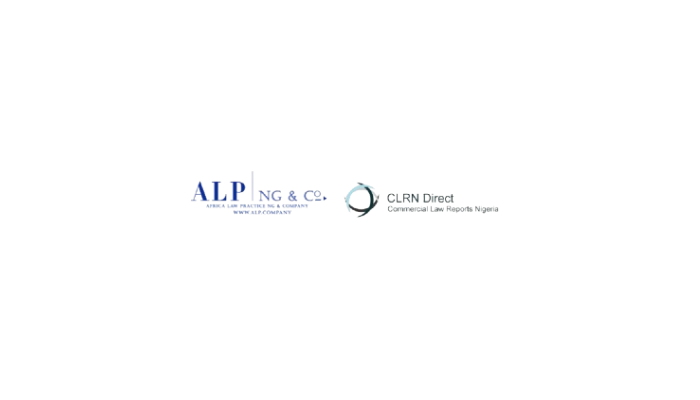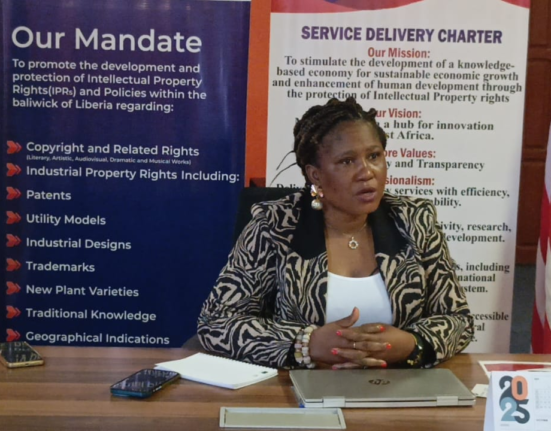CITILINK ACCESSCORP LIMITED v. MTN NIGERIA COMMUNICATIONS LTD & ANOR.
FEDERAL HIGH COURT
(LAGOS DIVISION)
(D. E. OSIAGOR, J)
BACKGROUND FACT
Citilink Accesscorp Limited (the Plaintiff) commenced action against MTN Nigeria Communications Ltd (1st Defendant) and the Registrar of Trademarks, Patents and Designs (2nd Defendant) concerning the 1st Defendant’s registration and adoption of the trademark “MTN WEBPLUS” and “WEB+” used for its internet services branding. The Plaintiff claimed that the 1st Defendants marks, which were registered under Classes 9, 16, and 38, with primary usage in Class 38 were confusingly similar in both appearance and sound to the Plaintiff’s registered trademark “WEBPLUS” which is registered under Class 9 and which covers scientific, technological apparatus, computer software, related goods. It was the Plaintiff’s case that in 2001, it applied for the registration of the mark “WEBPLUS” and the Registrar of Trademarks approved the registration of the Plaintiff’s mark and subsequently issued a certification of registration of the mark in favour of the Plaintiff. It was the Plaintiff’s assertion that it continuously used the mark for its business activities until its expiration in 2008; however, the name was not removed from the register and the Plaintiff renewed the registration in 2014.
The case of the 1st Defendant on the other hand was that in 2012, without knowledge of the Plaintiff’s existing mark, it made an application to register “MTN WEBPLUS” and “WEB+” and same was approved and a certificate of registration issued to it by the Register of trademarks during the period that the Plaintiff’s mark had expired and was not renewed. The 1st Defendant’s alleged that since registered trademarks in Nigeria lasts for 7 years and can be subsequently renewed perpetually for a period of 14 years which the Plaintiff had failed to do since 2008 after the expiration of “WEBPLUS” until 2014 after the 1st Defendant had already register a similar name. One of the issues raised for determination was: Whether the rights of the Plaintiffs Mark continued to inure in favour of the plaintiff as the proprietor of the trademark even after the expiration of the registration of the trademark.
ARGUMENTS
The learned counsel argued that the Plaintiff owns the WEBPLUS trademark, having duly registered it under RTM 65162 in Class 9 since 2001. Counsel submits that registration confers the exclusive right to use the trademark in relation to the goods for which it is registered. He stated that the courts have held that a registered proprietor has the sole right to use and enforce the trademark against infringers. According to counsel, the common law principle of first use also supports the Plaintiffs claim that ownership of a mark is determined by its first use and that the Plaintiff has demonstrated long-term and continuous use of WEBPLUS in its business, further solidifying its proprietary rights.
It is counsel submission that the Plaintiff successfully renewed its trademark in 2014, and crucially, the Registrar of Trademarks never removed WEBPLUS from the register. He stated that under the regulations, a trademark remains valid until it is formally removed. Counsel contented that an expired trademark remains valid unless removed by the Registrar and having renewed it trademark registration, the Plaintiffs right to the exclusive use of the trademark remains intact and continues to inure to the Plaintiff.
Learned Counsel for the 1st Defendant contended that the Plaintiff’s rights in its trademark did not continue to inure after the expiration of the registration. Counsel submitted that, at the time the 1st Defendant applied for the registration of its marks, the Plaintiff’s trademark registration had expired and had not been renewed. Consequently, counsel maintained that the exclusive rights granted by the registration had lapsed, and there was no valid legal basis for the Plaintiffs claim of infringement. Counsel further argued that the law stipulates that a trademark registration is valid for an initial period of seven years and may be renewed for additional fourteen-year terms upon application by the registered proprietor. It was contended on behalf of the 1st Defendant that the statutory provisions were cited to establish that failure to renew within the prescribed period renders the registration and subsequent renewal invalid and subject to removal from the Register. It was submitted that legal rights dependent on statutory validity expire upon the lapse of the prescribed period unless expressly renewed. It was further submitted that allowing an expired trademark registration to serve as the basis for an infringement action would create legal uncertainty and could be exploited to evade statutory renewal fees, thereby undermining government revenue as revenue-oriented statutes should be construed in favour of government. Learned Counsel also argued that a subsequent renewal of an expired registration doesn’t retrospectively confer rights during the period of expiration as the right to sue for infringement only arises upon actual registration, even where the registration is backdated to an earlier application date.
DECISION OF THE COURT
In resolving this issue, the Federal High Court held that:
An expired trademark continues to be valid and is still recognized as the property of its proprietor even after its expiration date, until it is officially removed from the register by the Registrar of Trademarks. The court added that no third party is allowed to take advantage of the trademark’s rights or benefits by attempting to register it once it has expired before it is removed from the register.
The court further emphasized that while the Registrar of Trademarks holds the authority to manage all matters related to the registration, objections, removal, or revocation of trademarks, it is the Federal High Court that possesses the exclusive jurisdiction to hear and determine cases involving trademark infringement. Additionally, the Federal High Court exercises appellate jurisdiction over decisions made by the Registrar in connection with trademark matters within the Registrar’s power.
Issue resolved in favour of the Appellant
Azubuike Obiekwe with Mrs. U. Anachulam for the Plaintiff
Fidelis Adewale with J. Uka-Ofor and T. Georgwill for 1st Defendant
This summary is fully reported at (2025) 5 CLRN in association with ALP NG & Co.
See www.clrndirect.com ; www.alp.company.








